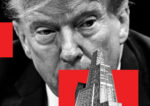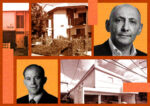Trending
Foreclosure program seeks volunteer attorneys to help homeowners
The Federal Reserve Bank of New York and the City Bar Justice Center are working to recruit more attorneys to volunteer to save New York City homeowners from foreclosure.
The joint effort, called the Lawyers’ Foreclosure Intervention Network, turned one year old last Thursday, and officials from the Fed and the city’s Bar, as well as attorneys from the city’s biggest law firms and financial institutions, gathered to discuss strategies to recruit more lawyers to the program, particularly from large law firms, where participation has been almost non-existent.
The program calls on volunteer attorneys to help homeowners in the five boroughs facing foreclosure, typically by negotiating with lenders to establish lower mortgage payments that the resident can afford.
In the past year, the two-person team, consisting of a director and a project coordinator, has interviewed close to 130 homeowners facing foreclosure in the five boroughs — but chiefly those in Brooklyn, Queens and the Bronx — and has assigned volunteer attorneys to 80 of these cases. The cases involve homeowners in default on primary mortgages and refinances, some of whom were the victims of fraud.
The program, which is funded chiefly by the Federal Reserve Bank, and receives other resources — including office space and stationery — from the Bar, is giving its third free training session for the program June 17 and 18. The course offers 12 continuing legal education credits, and requires, in exchange, that trainees represent at least one client pro bono.
June attendance is expected to be significantly lower than other periods.
Enrollment for this month is currently around 40, according to Lynn Armentrout, director of the Lawyers’ Foreclosure Intervention Network, which would make attendance significantly lower than the enrollment of about 125 lawyers last June, and 248 in October.
“In October, when the economy was tanking, we had a huge enrollment,” Armentrout said. “And now that the dust has settled and there isn’t the same impending disaster there was in the fall, it’s a little bit slower.”
So far, only two mid-sized firms, with over 30 lawyers, have participated: Golenbock Eiseman Assor Bell & Peskoe and Kasowitz, Benson, Torres & Friedman. Of the city’s largest firms, with over 100 attorneys, Orrick, Herrington & Sutcliffe is the only one to contribute attorneys.
The biggest reason large firms aren’t getting involved in the program, according to those who attended last week’s meeting, are so-called “positional conflicts.”
“They don’t want to represent cases that are adverse to financial institutions, because they want the business of the financial institutions,” Armentrout said.
Michael Campbell, assistant vice president of the Federal Reserve Bank, enumerated several potential remedies put on the table last week to boost involvement, including the possibility of having the in-house counsel at the banks themselves participate in the program. In this scenario, a lawyer from one financial institution would represent a homeowner in a foreclosure case in which another financial institution is the lender.
Another option would be the temporary replacement of big-firm attorneys to other firms — smaller firms not likely to pick up banks as clients — for the duration of the case’s proceedings. This way a major law firm’s attorney can do pro bono work on behalf of a homeowner without damaging the potential business relations of their own company.
Campbell said that he and Armentrout planned to begin opening their doors for more specific discussions with the large firms, and begin making visits, to try to see on a case-by-case basis which companies would be best suited for which cases. After finding a good fit, he said, they could mitigate positional conflicts by having the bank asked, hypothetically, without knowing the candidate firm, if the type of case would affect their business relationship.
Campbell conceded, however, that “[the positional conflict] problem is going to remain unless there is some anonymity for the law firms. So I’m not sure how viable those options are going to be.”
For her part, with respect to increased participation from big law firms, Armentrout said: “I would like to say that hope springs eternal, but I’m not holding my breath.”




